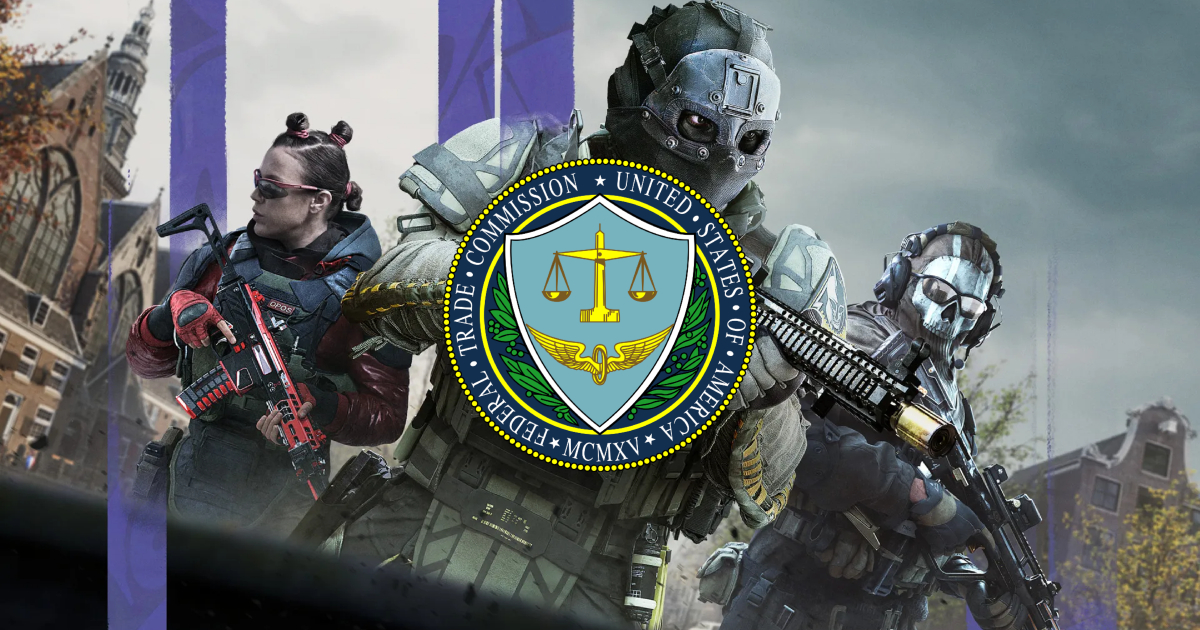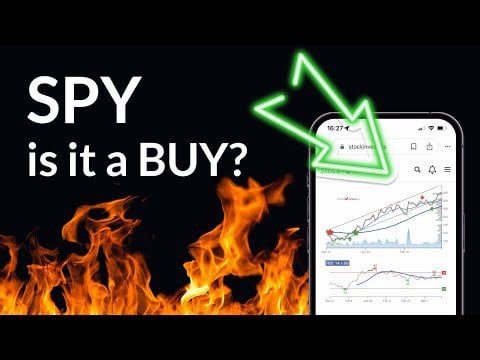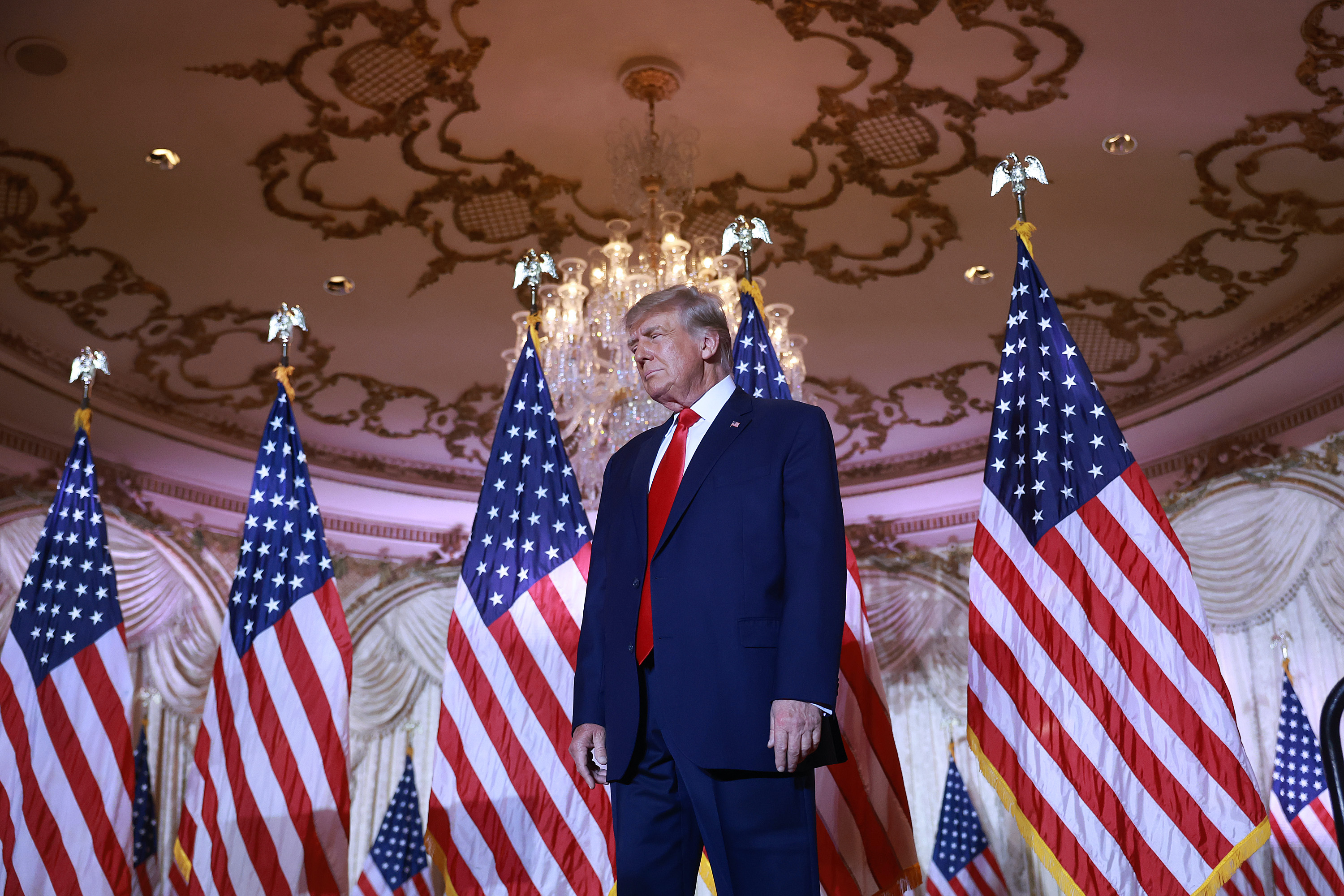FTC Appeals Activision Blizzard Deal: Implications For The Gaming Industry

Table of Contents
The FTC's Arguments Against the Merger
The FTC's core argument centers on the potential for anti-competitive practices resulting from the merger. They fear Microsoft's acquisition of Activision Blizzard will stifle competition and harm consumers.
Concerns Regarding Anti-competitive Practices
The FTC argues that the merger would give Microsoft an unfair advantage, potentially leading to a monopoly in certain sectors of the gaming market. Their concerns are multifaceted:
- Reduced competition in console and PC gaming markets: The combined market power of Microsoft and Activision Blizzard could significantly reduce competition, limiting consumer choice and potentially leading to higher prices.
- Potential for higher prices for gamers: With less competition, Microsoft could increase prices for games, subscriptions, and even hardware. This would directly impact gamers' wallets.
- Limited choices for gamers regarding gaming platforms and services: The acquisition could lead to fewer attractive alternatives for gamers, diminishing their ability to choose between different platforms and gaming ecosystems.
- Suppression of innovation due to reduced competition: A lack of competition often leads to less innovation, as companies lack the incentive to improve or create new gaming experiences.
The Importance of Call of Duty
Central to the FTC's argument is the significance of Call of Duty. This massively popular franchise is a key bargaining chip, and the FTC worries Microsoft could leverage it to harm competitors.
- Massive player base and revenue generation: Call of Duty's enormous player base and revenue generation make it a highly desirable asset.
- Cross-platform compatibility and its impact on competition: Call of Duty's current cross-platform availability fosters competition. Restricting it could severely damage rivals.
- The franchise's cultural impact and its role in the gaming landscape: The cultural influence of Call of Duty extends beyond its financial success, making its control a significant concern for regulators.
Microsoft's Defense and Counterarguments
Microsoft has countered the FTC's claims, emphasizing its commitment to maintaining Call of Duty's multi-platform availability and highlighting broader benefits for the gaming ecosystem.
Promises to Maintain Call of Duty's Multi-Platform Availability
Microsoft has repeatedly pledged to keep Call of Duty available on PlayStation and other platforms, aiming to alleviate the FTC's concerns about anti-competitive practices. However, the long-term enforceability of these promises remains a point of contention.
- Maintaining Call of Duty on PlayStation to ensure broader player reach: Microsoft argues that keeping Call of Duty on PlayStation maximizes its reach and revenue potential.
- Long-term commitment to cross-platform compatibility: They have committed to preserving cross-platform play, ensuring a wider player community.
- Claims of increased competition and innovation in the gaming market: Microsoft asserts that the merger will lead to increased competition and innovation within the gaming industry.
Broader Implications for the Gaming Ecosystem
Microsoft's vision extends beyond Call of Duty. They envision a future where their acquisition fosters greater game development and distribution. However, critics question the potential ramifications.
- Changes to game pricing strategies: The merger could influence pricing strategies for games and subscriptions, potentially impacting consumers.
- Influence on the subscription services market: The combined entity could significantly alter the landscape of gaming subscription services.
- Potential impact on indie game developers: The merger's effects on smaller, independent game developers remain uncertain.
The Wider Implications for Antitrust Regulation in the Tech Industry
This case sets a crucial precedent for future mergers and acquisitions in the tech sector. The FTC's aggressive stance signals increased regulatory scrutiny of large tech companies.
- Increased regulatory scrutiny of other large tech mergers: The FTC's appeal sends a clear message to other tech giants considering large acquisitions.
- Potential for stricter antitrust enforcement in the future: This case may lead to stricter antitrust enforcement and a more challenging regulatory environment for future mergers.
- Impact on innovation and competition in the tech sector: The outcome will shape the regulatory landscape, potentially influencing the pace of innovation and competition within the tech industry.
Conclusion
The FTC's appeal of the Activision Blizzard merger is a pivotal moment for the gaming industry. The outcome will significantly impact game development, distribution, and pricing. The focus on Call of Duty exemplifies the power of major franchises and the potential for anti-competitive practices. This decision will set a precedent for future antitrust cases, shaping the regulatory environment for years to come. Understanding this legal battle is crucial for anyone involved in or interested in the gaming industry. Stay informed about further developments regarding the FTC's appeal of the Activision Blizzard deal to understand the future of the gaming market.

Featured Posts
-
 Billionaires Secret Weapon The Etf Predicted To Soar 110 In 2025
May 08, 2025
Billionaires Secret Weapon The Etf Predicted To Soar 110 In 2025
May 08, 2025 -
 Realistic Wwii Movies Military Historians Picks
May 08, 2025
Realistic Wwii Movies Military Historians Picks
May 08, 2025 -
 Greenlands Future Assessing The Risks Posed By China Trumps Perspective
May 08, 2025
Greenlands Future Assessing The Risks Posed By China Trumps Perspective
May 08, 2025 -
 Psg Vs Arsenal Gary Nevilles Prediction And Match Analysis
May 08, 2025
Psg Vs Arsenal Gary Nevilles Prediction And Match Analysis
May 08, 2025 -
 Find The Daily Lotto Results For Thursday April 17 2025
May 08, 2025
Find The Daily Lotto Results For Thursday April 17 2025
May 08, 2025
